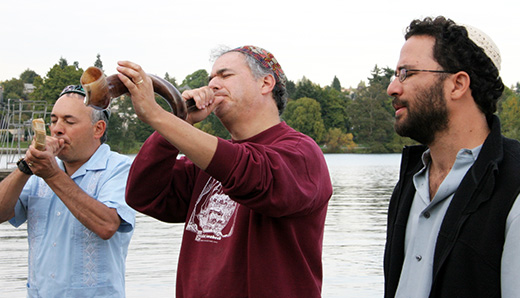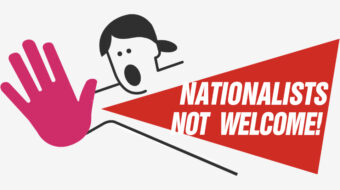
Let me tell you something about the Men’s Group I’m in. We formed in early 2009 at the Workmen’s Circle in Los Angeles, so we’re going on seven years now. We’ve fluctuated in number – now we’re at four – and we meet for two hours twice a month. We’re pretty homogeneous, maybe too much for our own good, as we’re all Jewish guys in our 60s and 70s (we did have some non-Jewish and younger and older participants but they moved away).
Our group isn’t therapy, and we’re not out to “fix” anyone. We just share the truths about our lives, issues with our careers, our marriages and relationships, kids, parents, aging, sex and sexuality, our health, our fears, the changes we’re going through. We try to speak from the heart and not give unwanted advice. We don’t waste time talking baseball or movies.
And yet, there is a therapeutic effect. If I come in one week with an issue that’s troubling me, I’m not going to come back the next time and say the same thing, and the next, and the next. To do so would only say, in so many words, that I’m not truly interested in addressing my problem, but only want a regular supply of shoulders to cry on. I’ve learned there’s a word for people like that: Vampires. They suck all your energy, your attention, your good will, but they don’t give back mutual support.
The Jewish New Year season comprises two major holidays, Rosh Hashanah, the New Year itself, this year September 14; and Yom Kipur, known as the Day of Atonement, September 23. During this time, Jews are asked to give thanks for the year past, to review their actions, apologize for their misdeeds and make amends, and resolve to do better in the year to come.
In a similar way to our Men’s Group, the New Year season discourages vampirism. In both our group and in the Jewish tradition, we try to remain real and authentic, honoring our selves and others, and the commitments we make. If we value the bonds of community, we assume the burden of honesty and candor. If we are going to be depending on one another in the months and the years to come, we have to be open, frank, trustworthy and constructive.
There is much our progressive movement can learn from the men’s group, and from the Jewish New Year. Are those of us (you know who you are) who endlessly carp and quibble about every faux pas of the President, in whom we are so deeply “disappointed,” or bemoan a 2016 candidate’s failure to lift up this or that hot issue – are we not acting as a kind of political vampire, injecting negativity, hopelessness and futility into our ranks? Are we coming back week after week with the same unresolved complaints, expending precious energy that could be better applied to actually achieving something in our union, our neighborhood or school? And aren’t the “vampires” letting us down, the rest of us trying so hard in this climate to keep our heads above the waters of cynicism, aiming for a little victory now and then?
This may be a good time to think about repairing frayed relationships, taking a long view of our movement’s needs as we both build independent politics on the one hand, and strengthen the unity of all those forces working compassionately for justice and peace. If we can work together harmoniously and supportively on the main issues, we’ll likely find that the issues separating us are not so fundamental after all.
A year from now we’ll be heading into the final stretch of what will surely be a stressful electoral campaign. Let us hope that the internal “reset” we perform on ourselves now leads to more effective collective work, and to great gains and accomplishments, in the critical months ahead.
Have a good and healthy New Year!
Photo: A man blows the traditional shofar (ram’s horn) to celebrate Rosh Hashanah, the Jewish New Year, at a ceremony in Seattle. Joe King CC 2.0










